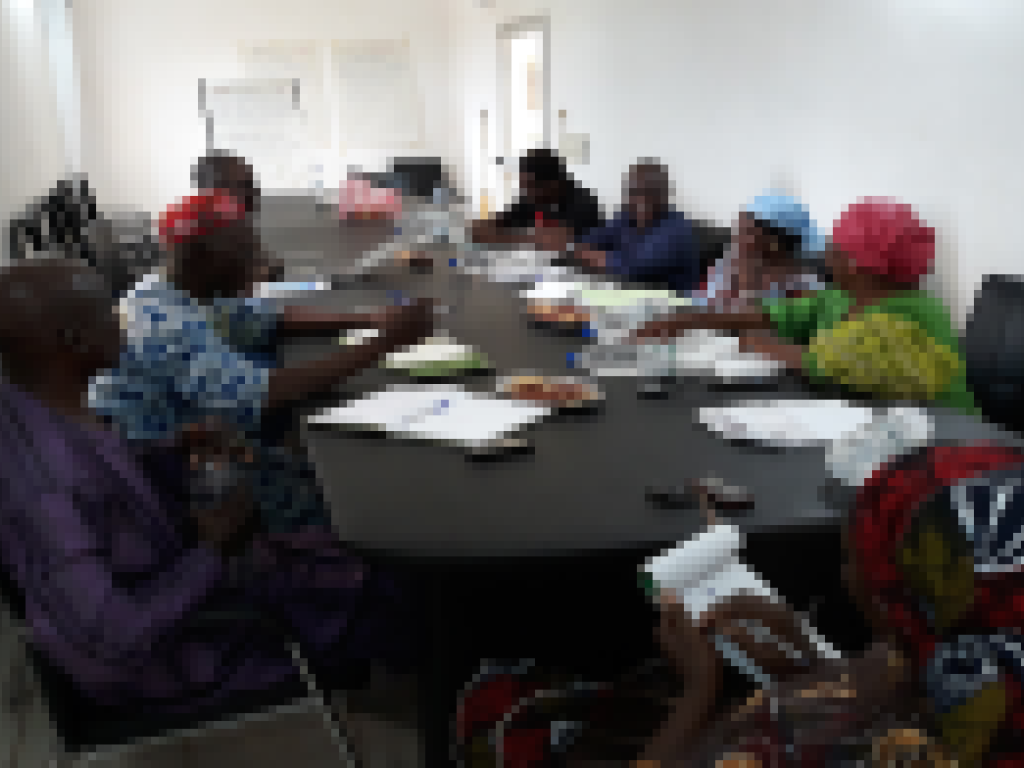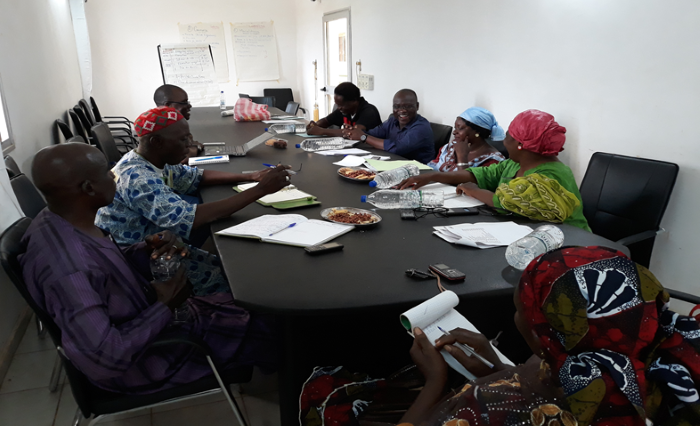Looking back on the Transformative Scenario Planning process in Mali

By Amadou Sidibé and Edmond Totin
On the back of a stakeholder event on building the adaptive capacity of young women, the ASSAR Mali team organised a second key event with the Transformative Scenario Planning (TSP) participants in Koutiala, on 28 August 2018, to reflect on the process and post-TSP capacity building activities that are underway.

The aim of the event was not only to look back on the TSP process but also to consider what participants learned and enjoyed most about the TSP process, and what they thought could have been done differently.
These discussions proved that we were wrong in thinking that the participants may have forgotten everything already. Instead, they were able to recall in detail all the different steps of the TSP process that led to the scenarios and vision that “by 2035, strategic investments will target agricultural and natural resource conservation to ensure food security and improve households’ income in the Koutiala district”.
Building networks
Following a review of the TSP pathway, the TSP participants discussed how they use the special network that the TSP progress allowed them to build. Along with telephone calls to discuss issues of common interest, one interesting example was brought by Kadiatou Dembélé, who works at one of Koutiala's community radio stations: "I was in the same scenario group as Zan Diarra from Meteorological Service. We stayed in touch, even after the TSP process, and he sent me weather forecast information for broadcast on communitiy radio." She regrets, though, that Diarra retired last year and there was no follow up to these exchanges with the Meteorological Service.
Field trip to Burkina Faso
The group's trip to Ouagadougou, Burkina Faso, to visit some sites for soil and water management, as well as water infrastructure (Bassins de Collecte des Eaux de Ruissellement- BCER), was one of the most interesting activities for participants. They were impressed by the enthusiastic way that farmers in Burkina Faso took the lead to organise themselves for the building of BCER – basins for the collection of run-off water to be used for irrigation during dry spells. They also appreciated the involvement of the Ministry of Agriculture, research institutes (Institut International de l’Eau et de l’Environnement) and the civil society (e.g.the Chamber of Agriculture) in the construction of this irrigation facility for farmers.
"The pragmatism and the participatory approach of the TSP process is unique, and the way it is leading to concrete actions for addressing the priorities, is a source of inspiration for us,’’ says Solomani Dembélé.
"The process is indeed one full of learning, and I think everything would have been perfect had we visited the Burkina sites during the rainy season to see with our own eyes how the farmers work and use the collected water in the basins to water hectares of crops,’’ Kadiatou Dembélé concludes.